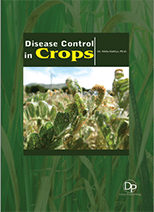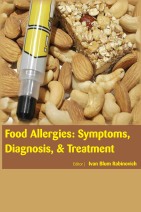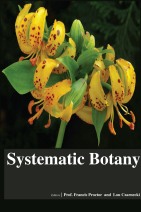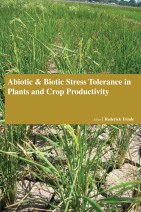Tab Article
Plants are affected by fungi, bacteria, viruses and nematodes which cause a range of diseases in plants. Certain abiotic factors such as temperature, nutrition, moisture and toxicity also results in stunted growth, low productivity and death in crops. Globally, about 10-16% crop yield is lost to plant diseases which cost about US$220 billion. Management of plant diseases relies on a number of general strategies as fungicide spray, cultivating pathogen resistant varieties, adopting crop rotation and reduction of plant stress. Fungicides are majorly used for the management of plant diseases, which is leading to the increased incidence of fungicide resistance in pathogens. The use of fungicides is also causing environmental concerns use to their heavy agrochemical use. Certain non-chemical approaches to disease control such as biological control methods, host-plant resistance and use of bacteriophages, are being exploited for effective disease control.









